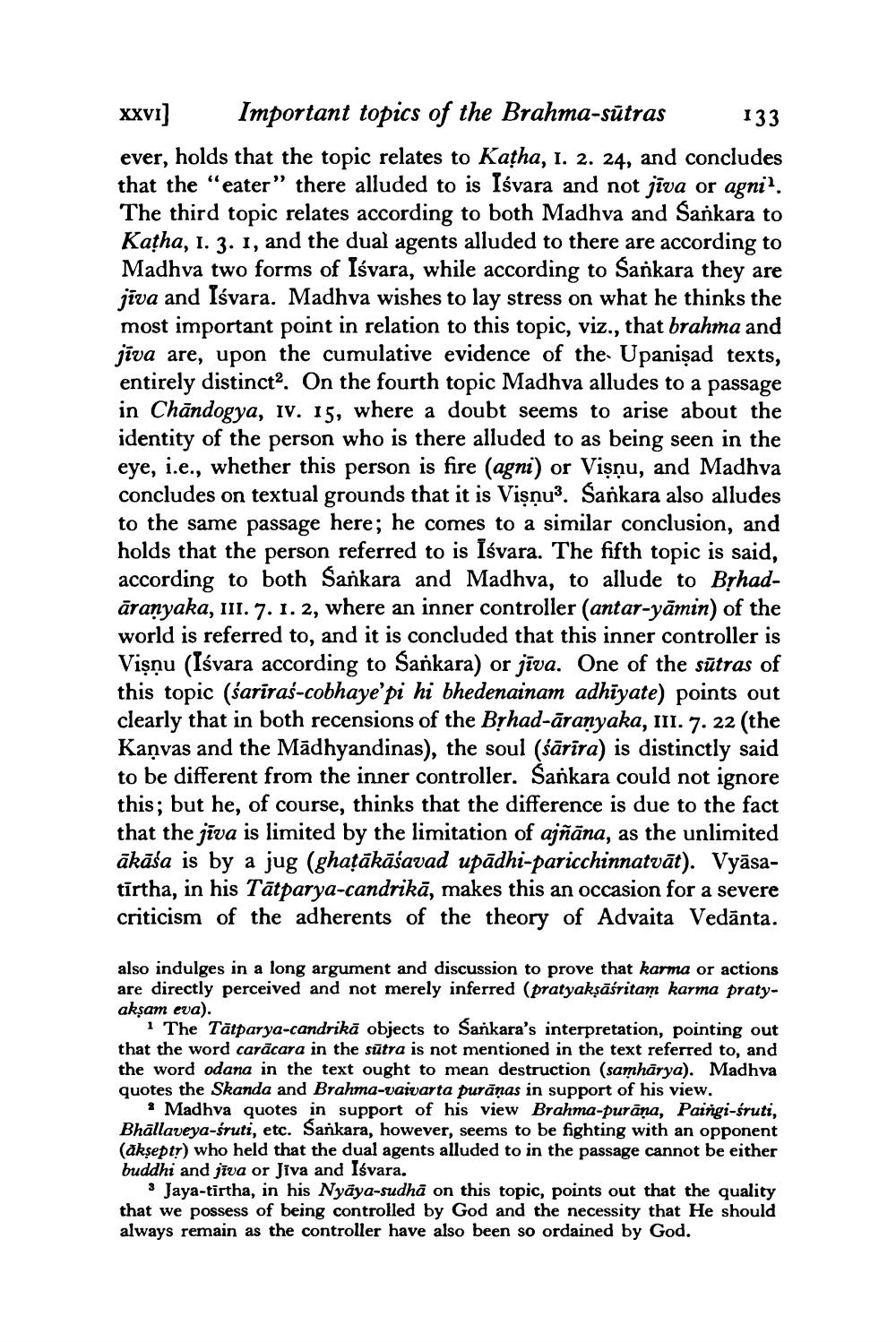________________
133
Xxvi) Important topics of the Brahma-sūtras ever, holds that the topic relates to Katha, I. 2. 24, and concludes that the “eater” there alluded to is Iśvara and not jīva or agni?. The third topic relates according to both Madhva and Sankara to Katha, 1. 3. 1, and the dual agents alluded to there are according to Madhva two forms of Isvara, while according to Sankara they are jiva and Isvara. Madhva wishes to lay stress on what he thinks the most important point in relation to this topic, viz., that brahma and jīva are, upon the cumulative evidence of the Upanişad texts, entirely distincta. On the fourth topic Madhva alludes to a passage in Chāndogya, iv. 15, where a doubt seems to arise about the identity of the person who is there alluded to as being seen in the eye, i.e., whether this person is fire (agni) or Vişnu, and Madhya concludes on textual grounds that it is Vişnu?. Sankara also alludes to the same passage here; he comes to a similar conclusion, and holds that the person referred to is Iśvara. The fifth topic is said, according to both Sankara and Madhva, to allude to Bịhadāranyaka, III. 7. 1. 2, where an inner controller (antar-yāmin) of the world is referred to, and it is concluded that this inner controller is Vişnu (Isvara according to Sankara) or jīva. One of the sūtras of this topic (sarīras-cobhaye'pi hi bhedenainam adhiyate) points out clearly that in both recensions of the Brhad-āranyaka, 11. 7. 22 (the Kanvas and the Mādhyandinas), the soul (śārīra) is distinctly said to be different from the inner controller. Sankara could not ignore this; but he, of course, thinks that the difference is due to the fact that the jiva is limited by the limitation of ajñāna, as the unlimited ākāśa is by a jug (ghațākāśavad upādhi-paricchinnatvāt). Vyāsatīrtha, in his Tātparya-candrikā, makes this an occasion for a severe criticism of the adherents of the theory of Advaita Vedānta.
also indulges in a long argument and discussion to prove that karma or actions are directly perceived and not merely inferred (pratyakşāśritam karma pratyakşam eva).
1 The Tātparya-candrikā objects to Sankara's interpretation, pointing out that the word carācara in the sūtra is not mentioned in the text referred to, and the word odana in the text ought to mean destruction (samhārya). Madhva quotes the Skanda and Brahma-vaivarta purānas in support of his view.
• Madhva quotes in support of his view Brahma-purana, Paingi-śruti, Bhāllaveya-śruti, etc. Sankara, however, seems to be fighting with an opponent (aksepty) who held that the dual agents alluded to in the passage cannot be either buddhi and jīva or Jiva and Isvara.
Jaya-tirtha, in his Nyāya-sudhā on this topic, points out that the quality that we possess of being controlled by God and the necessity that He should always remain as the controller have also been so ordained by God.




